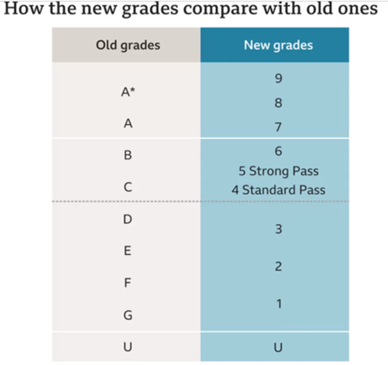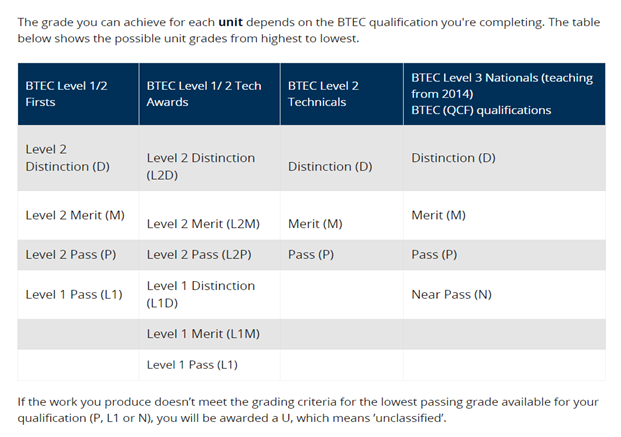- Home
- Learning
- Assessment and Reporting
Assessment and Reporting
Assessment
At Thamesview School, we see assessment as an integral part of teaching and learning, and it is inextricably linked to our curriculum trivium of “know well, think well and communicate well”
Thamesview School assessment operates using four key principles;
- Purpose – To help all students embed knowledge and use it fluently and assist teachers in producing clear next steps in teaching and learning for students.
- Validity – Assessments should meet all assessment criteria and questions should match intended learning objectives assessing students on their ability to know well, think well and communicate well.
- Reliability – Assessment task is consistent across all learners, over time and at the required level.
- Value – Assessments should give value to both teachers and learners, to directly impact the teaching and learning of students.
We use 3 broad overarching forms of assessment:
- Day-to-day formative assessments such as lesson daily reviews (Do now task or Starters, Questions etc)
- Formative assessments (end of unit/topic assessments etc)
- Summative assessments (end of term or year assessments)
Our day-to-day formative assessment enables:
Teachers to identify how pupils are performing on a continuing basis and to use this information to provide appropriate support or extension, evaluate teaching and plan future lessons
Pupils to measure their knowledge and understanding against learning objectives, and identify areas in which they need to improve
Parents to gain a broad picture of where their child’s strengths and weaknesses lie, and what they need to do to improve
Some key features of day-to-day formative assessment are:
- Do-now-task as retrieval/consolidation starter activity
- Formative Assessments such as end of topic/unit assessments
- Peer- and self-assessments
- Student engagement and immediate feedback
- Effective use of high-quality resources
- High open-ended probing questioning
- Modelling examples and independent practices
In-school summative assessment
Our in-school summative assessment enables:
School leaders to monitor the performance of pupil cohorts, identify where interventions may be required, and work with teachers to ensure pupils are supported to achieve enough progress and attainment
Teachers to evaluate learning at the end of a unit or period and the impact of their own teaching
Pupils to understand how well they have learned and understood a topic or course of work taught over a period. It should be used to provide feedback on how they can improve
Parents to stay informed about the achievement, progress and wider outcomes of their child across a period
All year groups will have two formal summative assessment points a year that assesses cumulative knowledge to inform Teaching and Learning and for reporting to all stake holders.
Assessment at KS3 (Year 7 – 9)
- All summative assessments would assess an accumulation of learnt skills and knowledge based on the Programme of Study for each subject. For example, in Mathematics students should be assessed on their ability to work mathematically through mathematical reasoning, problem solving and developing mathematical fluency within the topics taught. For History, pupils are expected to know, apply and understand the matters, skills and processes specified in the programme of study at KS3. Hence, History assessment should assess students based on knowledge, application and understanding of key skills and matters in History.
- Regular KS3 assessments will take place throughout the year with data drops in term 3 and 6. Year 8 and 9 summative assessments would assess learnt skills and knowledge application from year 7 and 8 respectively.
Assessment at KS4 - KS5 (Year 10 – 11 and Year 12 - 13)
- All KS4 summative assessments will assess an accumulation of learnt skills and knowledge based on the GCSE subject content, assessment objectives and grade descriptors in preparation for GCSE exams.
- Regular Year 10 and 12 assessments will take place throughout the year with data drops in term 3 and 6 while year 11 and 13 takes place in term 2 and 4 in the hall. Year 10 and 12 Assessment Point 2 (mocks) will also take place in the hall.
Reporting
Thamesview School aims to maintain a continuous dialogue, with parents and students, in order to develop excellent relationships that we believe ensure successful progress through the school. A significant aspect of this dialogue is the regular reporting to parents of the academic progress of their child in each curriculum area. We will communicate to parent their child’s progress in school throughout the year as follows;
Data and Reporting Schedule 2023-2024Things to look at for in your child`s report
All students’ progress report will include;
- School pastoral contacts
- The pupil's attendance record which will include:
- The total number of possible attendances for that pupil, and
- The total number of unauthorised absences for that pupil, expressed as a percentage of the possible attendances
- Golden tickets achievement points – Ambition, Respect and Resilience
- Behaviour points
- Subjects and name of class teacher/s
- Thamesview School Values grades 1-3 – Ambition, Resilience and Respect
|
Thamesview School Core Values Reporting Grade Descriptors |
|
|
1 |
A Flourishing Student frequently displays the attributes outlined below in the classroom. |
|
2 |
A Developing Student at times displays the attributes outlined below in the classroom. |
|
3 |
An Emerging Student rarely displays the attributes outlined below in the classroom. |
|
AMBITION: A strong desire to succeed. |
A Thamesview Student… endeavours to succeed at all times. focuses to fulfil short and long-term goals. engages in wider curricular activities. contributes effectively to the school and wider community. acts responsibly and strives to make good decisions. |
|
RESILIENCE: The ability to recover quickly from difficulties and persevere when challenged. |
A Thamesview Student… has the confidence to enjoy a challenge. moves forward with positivity after setbacks. questions to acquire knowledge. has a growth mindset. is adaptable in various situations. |
|
RESPECT: A regard for places and things as well as the feelings, beliefs and rights of others. |
A Thamesview Student… listens to and considers others’ opinions. shows consideration to the needs of others. is polite to all, even when holding an opposing view. treats their environment with care. understands their rights and worth. |
Year 7 - 9 reports will also include;
“Progress descriptors” which communicates students’ attainment as current working progress level as follows;
- Working below expected progress
- Working towards expected progress
- Working at expected progress
- Working above expected progress
Year 10 and 12 reports will also include;
- Working at grades (current attainment grade) expressed as fine-grades for Year 10 only.
|
Fine Grade Descriptions Explained |
|
|
+ |
Mastered skills |
|
= |
Secured skills |
|
- |
Developing skills |
- End of Key Stage minimum target grade
- Details of any vocational qualifications or credits towards any such qualifications gained
Year 11 and 13 reports will also include;
- Mock grades: Actual grades achieved in mock exams
- Prediction grades:
- End of Key Stage minimum target grade
- The results of any public examinations taken, by subject and grade
- Details of any vocational qualifications or credits towards any such qualifications gained
Year 11 New GCSE Grades Explained

Years 10/11/13 BTEC Grades Explained

